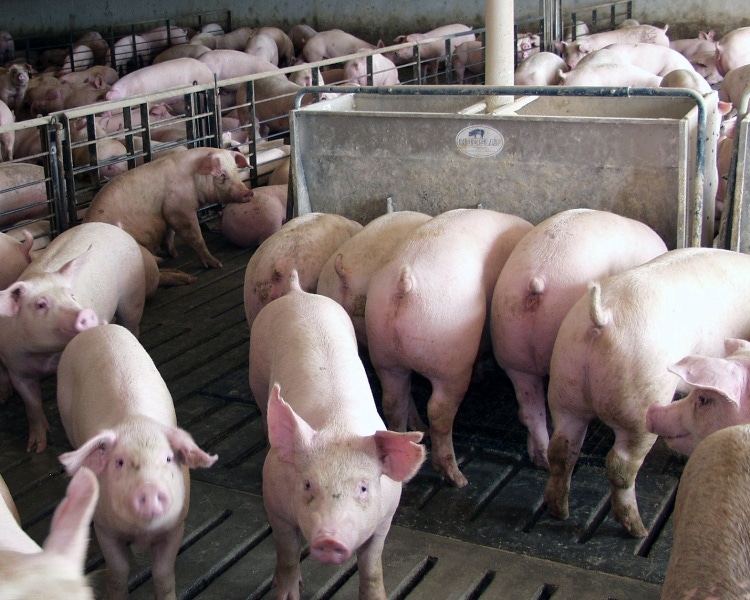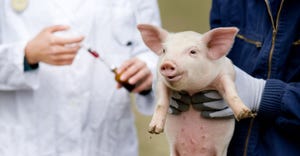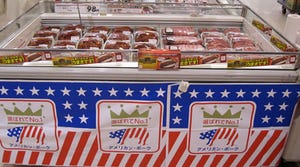Tyson bans ractopamine in U.S. pork supply to meet global demand
Farmers were notified of the change Wednesday and have until Feb. 4, 2020, to meet the new requirement.
October 17, 2019

In an effort to meet growing global demand for U.S. pork, Tyson Fresh Meats plans to prohibit the use of ractopamine in the market hogs it buys from farmers beginning in February 2020.
Ractopamine is a feed ingredient that helps increase the amount of lean meat in hogs. While it is FDA-approved and considered safe for use, some countries such as China prohibit the import of pork from hogs that have been given the product.
The beef and pork subsidiary of Tyson Foods, Tyson Fresh Meats has been offering a limited amount of ractopamine-free pork to export customers by working with farmers who raise hogs without it, and by segregating the animals and products at processing plants. However, the company says these programs no longer adequately meet growing global demand.
“We believe the move to prohibit ractopamine use will allow Tyson Fresh Meats and the farmers who supply us to compete more effectively for export opportunities in even more countries,” says Steve Stouffer, president, Tyson Fresh Meats.
Most of the hogs delivered to the company’s pork plants are purchased from about 2,000 independent farmers.
Farmers were notified of the change Wednesday and have until Feb. 4, 2020, to meet the new requirement. The company plans to work with them over the next several months to begin the process of testing hogs to ensure they are ractopamine-free.
Tyson Fresh Meats is the largest American-owned pork processor and generates almost $1 billion in pork export sales annually.
Source: Tyson Foods, Inc., who is solely responsible for the information provided, and wholly owns the information. Informa Business Media and all its subsidiaries are not responsible for any of the content contained in this information asset.
You May Also Like



